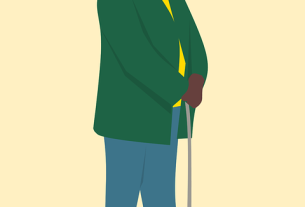Elderly companion services are essential for promoting the mental well-being of seniors by offering tailored support that includes social interaction, emotional support, and companionship to combat loneliness and isolation. These services engage seniors in activities suited to their interests and abilities, which can help preserve cognitive function and emotional health while supporting the management of chronic conditions through the positive effects of social connections on overall health. They enable elderly individuals to age comfortably in place, surrounded by familiarity and enriched by regular human interaction. These companion services not only assist with daily tasks to foster independence and maintain dignity but also contribute significantly to improving mental health, self-esteem, and quality of life among senior citizens. Selecting a service that matches your loved one's personality, interests, and routes is crucial for establishing a natural bond and enhancing social engagement. It's important to consider the companions' training, backgrounds, and the support systems provided by the service to ensure high-quality, personalized care. With a diverse range of companions available, reputable elderly companion services can facilitate meaningful relationships and considerable mental health improvements for seniors.
As we age, maintaining mental well-being becomes increasingly vital. Elderly Companion Services emerge as a pivotal resource for seniors seeking social interaction and emotional support, significantly enhancing their quality of life. This article delves into the transformative impact of such services, highlighting their role in fostering mental health among older adults. We explore the multifaceted benefits these companionship programs offer and guide readers through selecting the most suitable service for their needs. By understanding the importance of these services, we can better support our aging population’s journey towards sustained mental well-being.
- The Role of Elderly Companion Services in Enhancing Mental Well-Being Among Seniors
- Benefits of Social Interaction and Emotional Support for Older Adults Through Companion Services
- Choosing the Right Elderly Companion Service: Factors to Consider for Optimal Mental Health Outcomes
The Role of Elderly Companion Services in Enhancing Mental Well-Being Among Seniors

Elderly companion services play a pivotal role in nurturing mental well-being among seniors, offering a unique blend of social interaction, emotional support, and companionship tailored to their needs. These services are designed to mitigate feelings of loneliness and isolation, common challenges faced by older adults. By providing consistent and meaningful engagement through activities that align with the individual’s interests and capabilities, these companions help maintain cognitive functioning and emotional health. The presence of a dedicated companion can also aid in the management of chronic conditions, as there is often a positive correlation between social connections and better health outcomes. Furthermore, these services facilitate a sense of security for seniors who wish to age in place, allowing them to remain in familiar surroundings while benefiting from regular human interaction that enriches their daily lives.
The benefits of elderly companion services extend beyond mere companionship; they contribute significantly to the overall mental health of senior citizens. Trained companions not only offer a listening ear and shared activities but also assist with practical tasks, promoting independence and dignity. This support system can lead to improved self-esteem, reduced stress levels, and a more positive outlook on life. The role of these services is not just about combating the effects of aging but also about enhancing the quality of life for seniors, ensuring they have the social connections that are fundamental for mental wellness.
Benefits of Social Interaction and Emotional Support for Older Adults Through Companion Services

Elderly companion services offer a myriad of benefits that significantly enhance the mental well-being of older adults. Social interaction is a cornerstone of mental health, and these services facilitate meaningful conversations and activities that keep seniors engaged and connected to their community. The presence of a consistent companion can alleviate feelings of loneliness and isolation, which are detrimental to both mental and physical health. This companionship often leads to increased self-esteem and confidence as individuals feel heard, valued, and supported. Moreover, the emotional support provided by these services is instrumental in fostering resilience against depression and anxiety, common challenges for the elderly. These companions not only offer company but also assist with daily tasks, encourage participation in social events, and help maintain a routine that includes physical activity, further contributing to an older adult’s mental and emotional health. The tailored nature of companion services ensures that each individual receives support that is most beneficial to their unique needs, creating a personalized and effective experience for mental well-being enhancement.
Companion services are designed to be adaptable and responsive to the changing needs of older adults, offering a flexible support system that adapts to both the individual’s preferences and their evolving circumstances. This adaptability ensures that the emotional support provided remains relevant and impactful over time. Additionally, these services often encourage cognitive stimulation through games, puzzles, and discussions, which can help in maintaining mental acuity and reducing the risk of cognitive decline. The companions who provide this service are trained to recognize signs of mental health issues and to respond appropriately, either by facilitating access to professional care or by providing immediate support to manage stressful situations. As such, elderly companion services play a pivotal role in safeguarding and promoting the mental well-being of older adults, making them an invaluable resource in maintaining the overall quality of life for seniors.
Choosing the Right Elderly Companion Service: Factors to Consider for Optimal Mental Health Outcomes

When selecting an elderly companion service that can positively impact mental well-being, it’s crucial to consider several key factors. The compatibility between your loved one and their potential companion is paramount; their personalities, interests, and daily routines should align to foster a natural bond. Compatibility not only enhances social engagement but also contributes to a more enjoyable and fulfilling companionship experience. Additionally, the service provider’s approach to mental health should be holistic, incorporating activities and interactions designed to stimulate cognitive functions and emotional well-being. It’s important to assess the training and background of the companion, as well as the support structures and oversight mechanisms the service offers. This ensures that your loved one is in safe hands and receives consistent care tailored to their needs. Furthermore, reputable elderly companion services often provide a range of companions, allowing for flexibility and the opportunity to find the best match for your family member’s lifestyle and preferences. Engaging with these services can lead to meaningful relationships, increased social interaction, and a significant improvement in mental health outcomes for seniors.
In conclusion, the integration of elderly companion services plays a pivotal role in supporting mental well-being among seniors. These services offer a multitude of benefits, including meaningful social interaction and emotional support tailored to the unique needs of older adults. Selecting an appropriate elderly companion service hinges on a variety of factors that can influence the effectiveness of such care for optimal mental health outcomes. As our population ages, the importance of these services becomes increasingly clear, making them not just beneficial but a vital component in the holistic approach to senior living and care.



